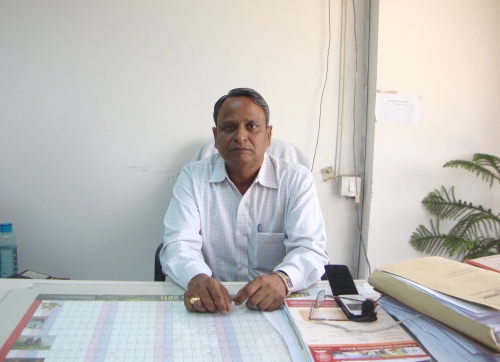Interview With Delhi Government’s Eco Club In-charge Dr. B.C. Sabata

The Environment Department of the Government of NCT of Delhi has been coordinating the Eco Clubs Programme since over a decade now. The large number of Eco Clubs in different schools and colleges across Delhi have played an important role in creating environmental awareness among school children and youth.
On the occasion of World Environment Day, Aastha Kukreti of Delhi Greens catches up with Delhi Govt’s Eco Clubs In-charge Dr. B. C. Sabata who is also a Senior Scientific Officer in the Government’s Department of Environment.
Aastha Kukreti: What are the major initiatives taken by your Department to spread awareness about environmental protection especially with respect to children and youth?
Dr. B.C. Sabata: The Department of Environment has been very active in spreading awareness about environmental protection with a special focus on children and youth. We coordinate the programme of Eco Clubs in schools and colleges to sensitize students on environmental issues particularly related to Delhi. Students are invited to participate in various environmental programmes which gives them an all round exposure. Teachers are also trained about the environmental issues through various workshops, seminars and lectures which equips them to teach the subject of environment education in schools. Through the Eco Clubs programme and through various other schemes like grants to NGO, publishing suitable advertisement in the national dailies and by organizing various public activities on environmental issues, we are constantly working to raise environmental awareness amongst the masses.
Aastha Kukreti: Please elaborate on the Eco Clubs scheme that is being coordinated by your Department?
Dr. B.C. Sabata: Under the Eco Clubs scheme, a grant of Rs. 10,000/- p.a. from Department of Environment (DoE) and Rs. 2,500/- p.a. from the National Green Corp (NGC) is given to each member school for carrying out various environmental activities in the school. This total amount of Rs. 12,500/- p.a. is allocated to the Eco Club of the school and is to be used for its activities only. The Eco Club member colleges however get a total fund of Rs. 10,000/- p.a. from only the DoE for carrying out their environmental activities.
Aastha Kukreti: When did the Eco Clubs scheme start?
Dr. B.C. Sabata: It was started in the year 1998.
Aastha Kukreti: How many schools are part of it at present?
Dr. B.C. Sabata: There are over 2,000 schools and colleges of Delhi which are a part of Eco Clubs.
Aastha Kukreti: What is the response like to the Eco Clubs scheme?
Dr. B.C. Sabata: The response is very good. After Class 6th onwards, students are enrolled under the Eco Clubs programme and through activities and workshops, are imparted environmental knowledge. Information dissemination is the primary objective of these workshops while it is also ensured that children get exposed to nature and understand its importance in our daily lives.
Aastha Kukreti: What are the key challenges faced during the implementation of these initiatives like the Eco Club and specifically, what challenges does your Dept. face while working with schools and young people?
Dr. B.C. Sabata: Through Eco Clubs, various schools and colleges are motivated to take initiatives on the environmental front. Schools are motivated to implement this programme and through it, create greater environmental awareness among the children. Teachers are inspired to take environmental actions and students are engaged in the workshops that bring them closer to nature. Because of the increased awareness in the children and young people, there isn’t any serious implementation challenge that we face.
Aastha Kukreti: What is the noticeable change that has happened with the introduction of Eco Clubs according to you? Is there any success story you would like to share with us?
Dr. B.C. Sabata: Through Eco Clubs, various campaigns have been taken forward by the students which has made a big difference to the city. A noticeable change is the one brought out by the Anti-Cracker Campaign which was driven by the students themselves. The campaign brought down the air pollution level of the city significantly around the Diwali time and has helped give the city cleaner air. Other initiatives like zero garbage campus, segregation of waste, rain water harvesting, energy and water conservation programmes have proved to be very successful.
Aastha Kukreti: Your message to the general public on the occasion of World Environment Day 2011?
Dr. B.C. Sabata: One should be caution for saving one’s environment. Plant a tree, conserve water and reuse waste.
Aastha Kukreti: Your specific message to children and youth?
Dr. B.C. Sabata: Children should know and learn about their natural resources so that they can protect their environment. Youth should work towards making a clean and green environment.




congrats on the Remarks,discussions and the views expressed here.our Delhi city,is really an amazing place on Earth,having Vitality&equal participation by the citizens through Bhagidari and general Awareness about Environment Protection.We have a sound Infrastructure,Adequate Resources to keep our surroundings Green.So that ,pollution is not making way into our Precious Lives by way of emission of Waste fuel into River Water.Gases and hazardous Chemicals are away from the day-to-day chores.